Once known as “Polar Queen,” the Research Vessel (R/V) Falkor is one of the most advanced exploratory ships created by the Schmidt Ocean Institute. At 83 meters (272 ft) long and 13 meters (43 ft) wide, this state-of-the-art vessel travels the globe mapping the seafloor and uncovering the mysteries of marine life. This summer, it embarked on a new expedition, making a thrilling discovery 900 miles off the coast of Chile. Rising from the Nazca Ridge is a massive seamount brimming with strange marine creatures never seen before. This underwater mountain is not only four times taller than the Burj Khalifa but also larger than Mount Olympus. The institute shared news of the discovery in a press release.

Seamounts—underwater mountains—and deep-sea trenches often serve as habitats for unique marine life, but this newly discovered seamount is the largest ever recorded. According to CNN, it stands at 1.9 miles (3,109 meters) tall, surpassing the height of Greece’s Mount Olympus, which is 1.8 miles (2,917 meters) high. This unnamed seamount is home to sponge gardens, coral reefs, and rare marine species, all thriving in vibrant hues within this deep-sea ecosystem.
The expedition succeeded because the researchers had the advantage of modern technology. They were able to map this giant seamount by using a sonar system attached to the underside of the ship’s hull. “Sound waves go down and they bounce back off the surface, and we measure the time it takes to come back and get measured. From that, we get a really good idea (of the seabed topography),” Jyotika Virmani, the institute’s executive director, told CNN. At this moment, she said, only about 26% of the seafloor has been mapped to this kind of resolution. And the seafloor covers 71% of our planet’s surface.

In their exploratory dive, the team also employed an underwater robot to investigate the thriving ecosystem breathing within the seamount. They found that inside the coral garden, about the size of three tennis courts, swam species like rockfish, brittle stars, and king crabs. Not only this, they were also able to capture the first-ever footage of a live Promachoteuthis squid. They also filmed the ghostly white Casper octopus, Oreo fish, and flying spaghetti monsters. Located far away from the coast, the environment was free of human intrusion and therefore, pristine.
According to the press release, this expedition was the third exploration of 2024, of the Salas y Gómez and Nazca Ridges conducted on the R/V Falkor. Two previous expeditions in January and February documented over 150 previously unknown species, and 20 new species were collected during this expedition. “The seamounts of the Southeastern Pacific host remarkable biological diversity, with species found nowhere else to date,” said Prof. Alex David Rogers, Science Director of Ocean Census. Meanwhile, Virmani confirmed to ABC News that they will continue to discover new marine species in their future expeditions. "Every time we go out to the ocean, we find something new," she said. "So it's almost like we expect to find something every time we go out. I think we'd be disappointed if we didn't."





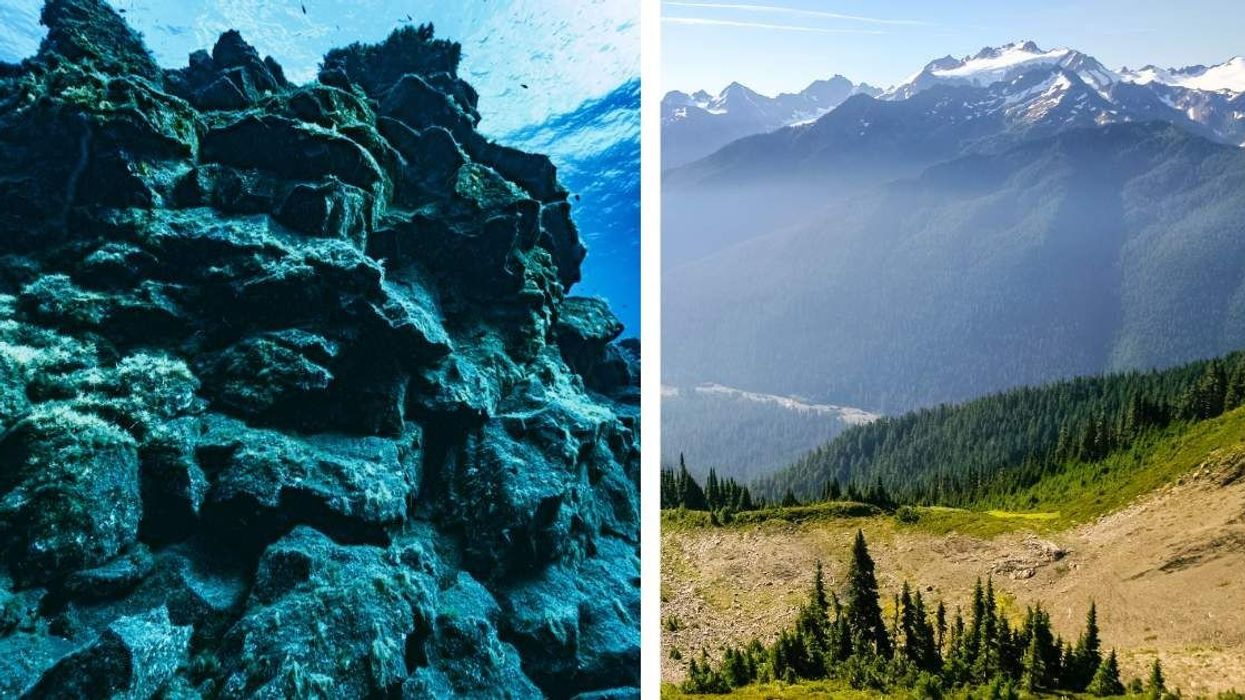











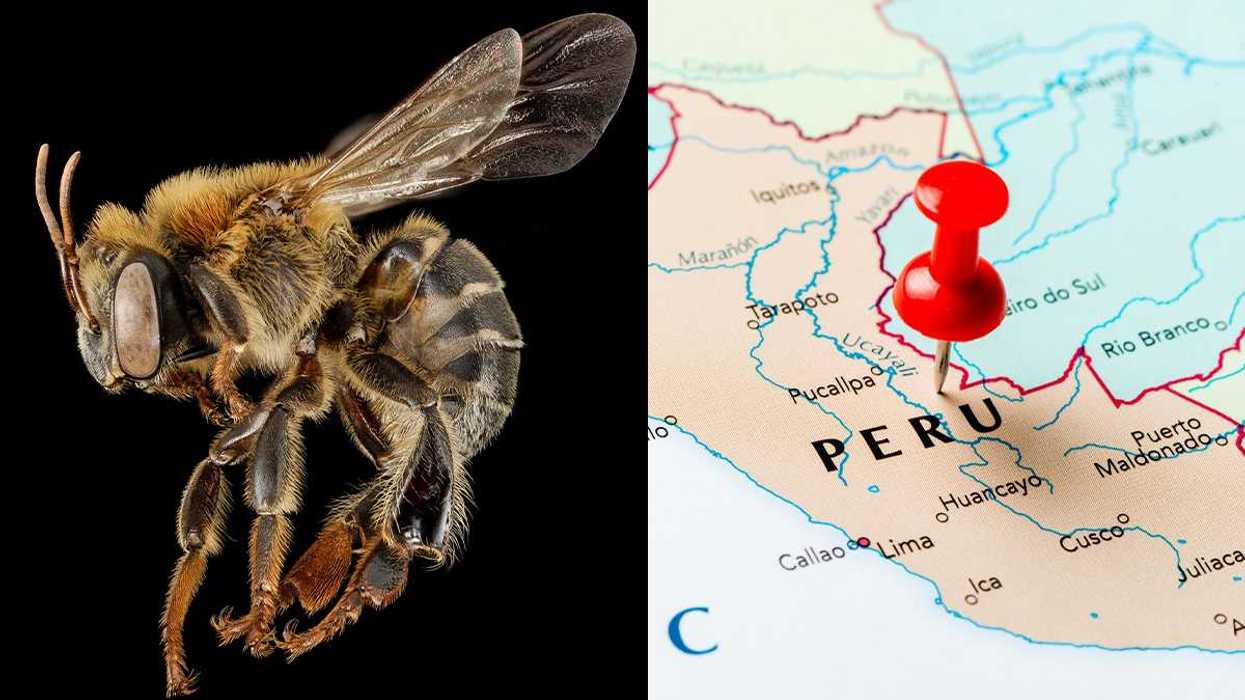
 Peru stingless bee.USGS Bee Inventory and Monitoring Lab/
Peru stingless bee.USGS Bee Inventory and Monitoring Lab/  Indigenous Peruvian people.Photo credit
Indigenous Peruvian people.Photo credit 
 Representative Image: Accents reveal heritage and history.
Representative Image: Accents reveal heritage and history.  Representative Image: Even unseen you can learn a lot from an accent.
Representative Image: Even unseen you can learn a lot from an accent. 

 Rice grain and white rice.Image via
Rice grain and white rice.Image via  Person eats rice.Image via
Person eats rice.Image via  Washing and rinsing rice.
Washing and rinsing rice.  Mother and daughter eating rice meal.Image via
Mother and daughter eating rice meal.Image via 

 Bees feeding on food source.Image via
Bees feeding on food source.Image via 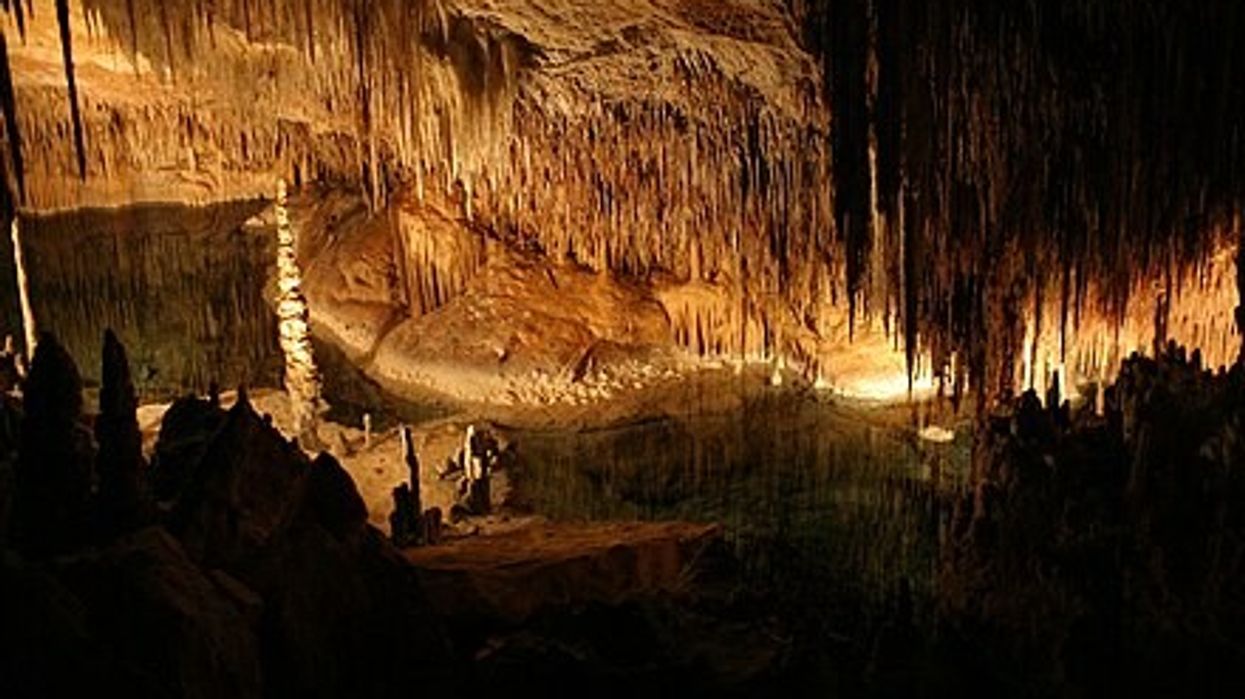
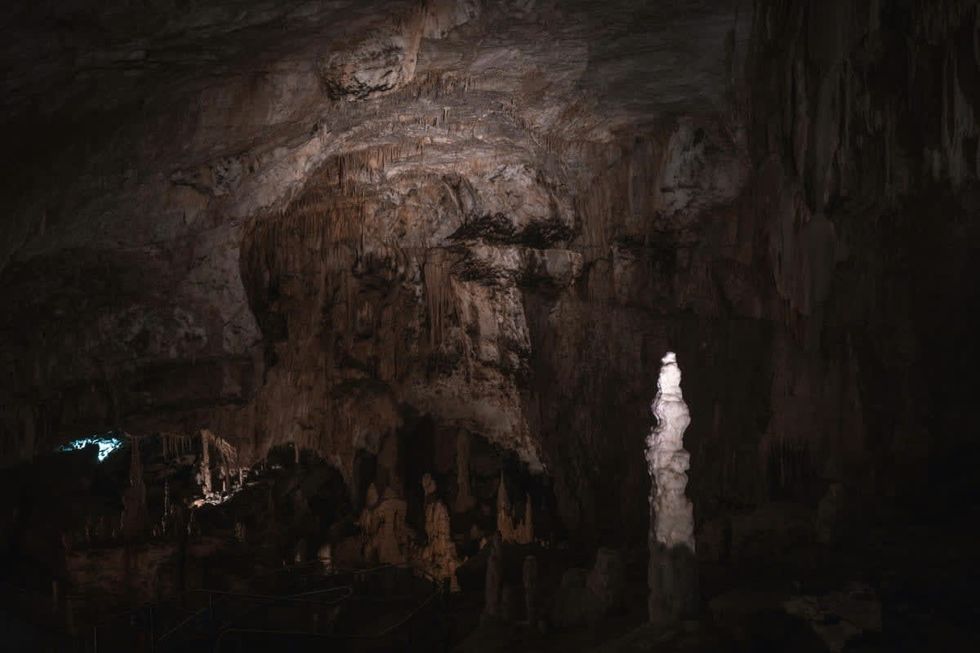 In the depths...Pexels | francesco ungaro
In the depths...Pexels | francesco ungaro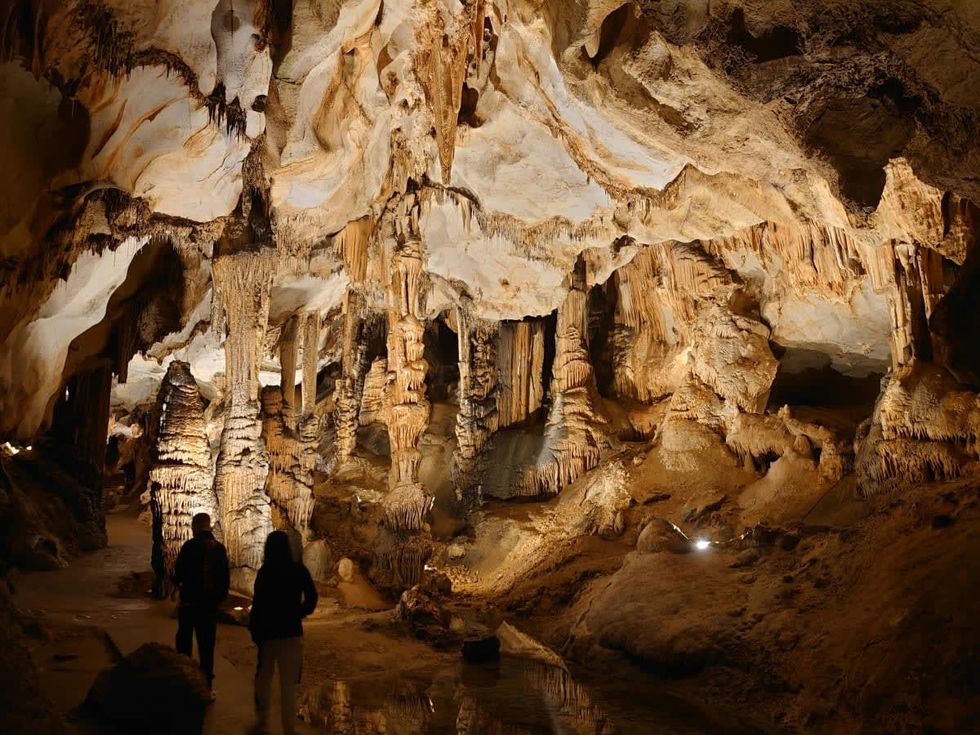 Hope the lights stay on. Pexels | parfait fongang
Hope the lights stay on. Pexels | parfait fongang "That was beyond crazy..." YouTube |
"That was beyond crazy..." YouTube |  "This is the stuff of my nightmares..."YouTube |
"This is the stuff of my nightmares..."YouTube |  "Totally blown away..." YouTube |
"Totally blown away..." YouTube |
President Donald J. Trump and photo of a forest.
Public united and adamantly opposes Trump’s plan to roll back the Roadless Rule
There doesn't seem to be much agreement happening in the U.S. right now. Differing moral belief systems, economic disparity, and political divide have made a country with so many positives sometimes feel a little lost. Everyone desperately seeks a niche, a connection, or a strong sense of community to which they can feel a "part of," rather than just "apart."
But there seems to be one thing that the country strongly unites over, and that's the "Roadless Rule." With the Trump Administration attempting to roll back conservation policies that protect U.S. National Forests, Americans are saying in harmony an emphatic "No." A nonpartisan conservation and advocacy organization, the Center for Western Priorities, reviewed a comment analysis on the subject. After receiving 223,862 submissions, a staggering 99 percent are opposed to the president's plan of repeal.
What is the 'Roadless Rule' policy implemented in 2001?
The Roadless Rule has a direct impact on nearly 60 million acres of national forests and grasslands. According to the U.S. Department of Agriculture, the rule prohibits road construction and timber harvests. Enacted in 2001, it is a conservation rule that protects some of the least developed portions of our forests. It's considered to be one of the most important conservation wins in U.S. history.
America's national forests and grasslands are diverse ecosystems, timeless landscapes, and living treasures. They sustain the country with clean water and the wood products necessary to build our communities. The National Parks protected under their umbrella offer incredible recreational retreats and outdoor adventure.
Why does the administration want to roll it back?
U.S. Secretary of Agriculture Brooke L. Rollins told the Department of Agriculture in a 2025 press release, “We are one step closer to common sense management of our national forest lands. Today marks a critical step forward in President Trump’s commitment to restoring local decision-making to federal land managers to empower them to do what’s necessary to protect America’s forests and communities from devastating destruction from fires." Rollins continued, “This administration is dedicated to removing burdensome, outdated, one-size-fits-all regulations that not only put people and livelihoods at risk but also stifle economic growth in rural America. It is vital that we properly manage our federal lands to create healthy, resilient, and productive forests for generations to come. We look forward to hearing directly from the people and communities we serve as we work together to implement productive and commonsense policy for forest land management.”
Forest Service Chief Tom Schultz explained the Roadless Rule frustrated land management and acts as a challenging barrier to action. It prohibits road construction needed to navigate wildfire suppression and properly maintain the forest. Schultz said, “The forests we know today are not the same as the forests of 2001. They are dangerously overstocked and increasingly threatened by drought, mortality, insect-borne disease, and wildfire. It’s time to return land management decisions where they belong – with local Forest Service experts who best understand their forests and communities."
Why are people adamantly opposed to the proposed rollback?
A 2025 article in Earthjustice, a nonprofit environmental law organization, expressed its concern over the protection of national forests covering 36 states and Puerto Rico. A rescinded rule allows increased logging, extractive development, and oil and gas drilling in previously undisturbed backcountry. Here is what some community leaders had to say about it:
President Gloria Burns, Ketchikan Indian Community, said, "You cannot separate us from the land. We depend on Congress to update the outdated and predatory, antiquated laws that allow other countries and outside sources to extract our resource wealth. This is an attack on Tribes and our people who depend on the land to eat. The federal government must act and provide us the safeguards we need or leave our home roadless. We are not willing to risk the destruction of our homelands when no effort has been made to ensure our future is the one our ancestors envisioned for us. Without our lungs (the Tongass) we cannot breathe life into our future generations.”
Linda Behnken, executive director of the Alaska Longline Fishermen’s Association, stated, "Roadbuilding damaged salmon streams in the past — with 240 miles of salmon habitat still blocked by failed road culverts. The Roadless Rule protects our fishing economy and more than 10,000 jobs provided by commercial fishing in Southeast Alaska.”
The Sierra Club's Forest Campaign Manager Alex Craven seemed quite upset, saying, "The Forest Service followed sound science, economic common sense, and overwhelming public support when they adopted such an important and visionary policy more than 20 years ago. Donald Trump is making it crystal clear he is willing to pollute our clean air and drinking water, destroy prized habitat for species, and even increase the risk of devastating wildfires, if it means padding the bottom lines of timber and mining companies.”
The 2025 recession proposal would apply to nearly 45 million acres of the national forests. With so many people writing in opposition to the consensus, the public has determined they don't want it to happen.
Tongass National Forest is at the center of the Trump administration's intention to roll back the 2001 Roadless Rule. You can watch an Alaska Nature Documentary about the wild salmon of Tongass National Forrest here:
- YouTube www.youtube.com
The simple truth is we elect our public officials to make decisions. The hope is they do this for all of our well-being, although often it seems they do not. Even though we don't have much power to control what government officials do, voicing our opinions strongly enough often forces them to alter their present course of action. With a unanimous public voice saying, "No!" maybe this time they will course correct as the public wishes.